#Bernardo Bellotto
Explore tagged Tumblr posts
Text
Worldbuilding Worksheets

Worksheets & Templates Geography; World History; City; Fictional Plant
GEOGRAPHY
Major…
Geographical features:
Geographical events:
Climate / flora zones:
Landscapes:
Resources:
Boundaries:
Routes:
Questions to consider…
How does the geography change over time?
What lies outside the boundaries of the world?
Are there unexplained geographical phenomena?
How does geography affect transport?
Are there cycles of change?
How do people interact with the landscape?
How do their activities alter the landscape?
How well are people adapted to the landscape?
How do people study and record their world's geography?
How well do people know the geography of their world?
What are some misconceptions about their landscapes?
Does the landscape provide enough resources?
How does the landscape change people?
Are there unreachable or unexplored places?
How do people feel about the landscape?
How does geography inform science?
How does geography inform art?
Settlement:
Resources:
Features:
Borders:
Geographical Features:
How was it formed?
When was it formed?
How do people use it?
Draw a map of your world (or settlement).
Doodle of a landscape.
WORLD HISTORY
Major...
Eras:
Cultures:
Wars/Cultures:
Events:
Movements:
Disasters:
Leaders:
Alliances:
Polarisations:
Advances:
Regressions:
Discernible Patterns:
Questions to consider...
How is history recorded?
How far back do records date?
Is any history lost and forgotten?
How biased are different cultures' historical accounts?
Is historical knowledge available to everyone?
How seriously do cultures take the study of history?
What are some points of contention?
Are there "natural" historical records?
What is considered the purpose of recording or studying history?
CITY
What is the city’s name?
What defines the settlement as a city?
Who lives here and what are they called?
Why do they live here?
What do the inhabitants do?
What are the city’s resources?
What resources need to be imported?
What is the main source of income?
Where is the city?
Who are its closest neighbours?
Why was the city built here?
How large is the city?
What do the dwellings look like?
Why do they look the way they do?
Are there threats to the city?
If yes, how has the city adapted?
What is the prevalent architectural style?
Who are the city leaders?
Who are the outsiders?
Where do they live?
Is there crime?
If yes, what do the criminals want?
Is there a large rich-poor gap?
How are the thoroughfares arranged?
Where do the inhabitants work?
What are the modes of travel?
How has transportation shaped the city?
Is it easy to leave & re-enter the city?
Are there many foreigners?
How are religions and rites accommodated?
What are the main districts?
What other factors might have affected the city’s development?
What are its landmarks?
What is the air like?
Does the city create its own microclimate?
How is the city regarded by its inhabitants?
How is the city regarded by outsiders?
How old is the city?
Have parts been redeveloped?
Has the city been planned?
How are resources distributed?
How are dwellings laid out?
What materials are used in construction?
What flora and fauna live in the city?
What is characteristic of the citizens?
How does the city reflect the tastes of its inhabitants?
Is the city famous for anything?
What is the city’s emblem / mascot / coat of arms?
What language is spoken?
Do the citizens have a distinct dialect / accent?
FICTIONAL PLANT
Who or what planted this plant?
What does this plant see or sense?
How does this plant get on with its neighbours?
How is this plant adapting to its environment?
What is at the root of this plant?
Who was this plant’s last visitor?
Where are this plant’s parents or progeny?
How did this plant look when it was younger?
Follow this plant through the seasons.
If this plant could talk, what would it tell you?
What makes this plant unique?
Look up the botanical description of this plant.
What makes this plant perfect?
What makes this plant imperfect?
What is this plant’s greatest desire?
What is this plant’s greatest fear?
How does this plant defend itself?
How does this plant deal with adversity?
What will happen after this plant dies?
What is this plant’s favourite memory?
What does this plant think about itself?
How does this plant move?
What do you feel when you touch this plant?
What can this plant sense that you can’t?
How is this plant like you?
What can you learn from this plant?
Source Writing References: Worldbuilding ⚜ Plot ⚜ Character
#worldbuilding#writeblr#dark academia#spilled ink#writing prompts#fiction#writing reference#writing advice#literature#creative writing#writers on tumblr#writing prompt#writing tips#story#novel#light academia#writing ideas#writing inspiration#bernardo bellotto#writing resources
164 notes
·
View notes
Text

New Market Square in Dresden painted by Bernardo Bellotto (1721 - 1780)
184 notes
·
View notes
Photo
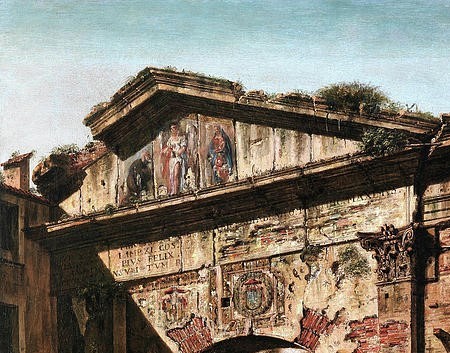

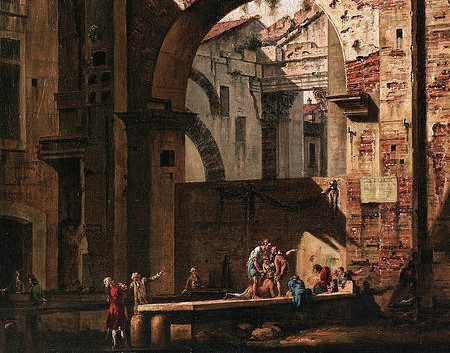

Bernardo Bellotto - The Porticus Octaviae, c.1769
#Bernardo Bellotto#rococo#veduta#painting#oil painting#oil on canvas#art#art history#architecture#ancient architecture#ancient rome#cityscape#ruins#venetian school#18th century#18th century art#dark academia
674 notes
·
View notes
Text
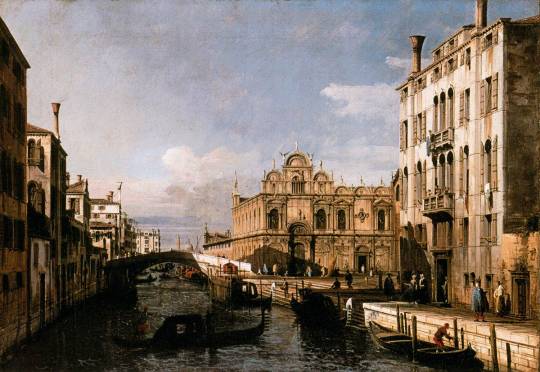
Rio dei Mendicanti and the Scuola di San Marco by Bernardo Bellotto (1721 - 1780)
141 notes
·
View notes
Photo

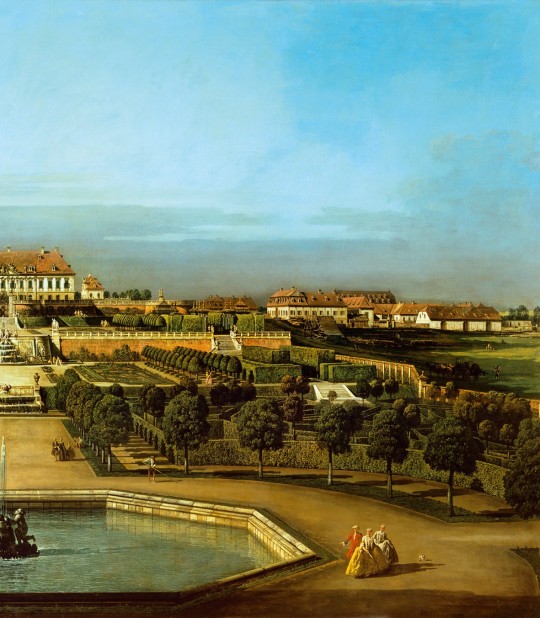
The Schloss Hof - Garden Side, 1758 by Bernardo Bellotto
#Bernardo Bellotto#rococo#dresden period#cityscape#landscape#painting#oil painting#oil on canvas#art#art history#18th century art#landmark#palace
199 notes
·
View notes
Text

Bernardo Bellotto, The Fortress of Königstein, 1756-1758, oil/canvas (National Gallery of Art, Washington D.C.)
2 notes
·
View notes
Text

Bernardo Bellotto - Church of the Holy Cross in Warsaw.
#Bernardo Bellotto#history#art#painting#artwork#oil painting#paintings#art history#arte#warsaw#warszawa#poland#polska#polish art#polish architecture#architecture#cityscapes#kunst
4 notes
·
View notes
Text

Capriccio with Coliseum, 1750 by Bernardo Bellotto (1722-1780)
10 notes
·
View notes
Text

貝納多·貝洛托(Bernardo Belotto, 1722-1780)
別名卡納萊托(Canaletto)《皇宮露台望去的華沙風景》"Widok Warszawy z tarasu Zamku Królewskiego", 1773年,華沙國家博物館.
View of Warsaw from the Terrace of the Royal Castle by Bernardo Bellotto called Canaletto from the collection of the National Museum. Photo: National Museum in Warsaw
"1773年,皇宮後的景色,左邊是銅屋頂宮殿(Pałac pod Blachą),遠景有城市,右邊可以看到克拉科夫郊區街(Krakowskie Przedmieście)上的建築物。"
"這幅畫為什麼在如此突出的地方展出?將卡納萊託的這部作品置於這個位置有很多原因,其中的一個是我們身在華沙,而這幅畫展示了第二次世界大戰前尚未毀滅的城市。卡納萊託的畫作為華沙重建的源泉,建築師依靠這幅畫所展現的舊建築對華沙進行重建。"
"此外,這幅都市景觀畫中的陪襯物非常豐富。在前景中可以看到卡納萊托作為皇家畫家所屬的宮廷生活,因此這些都是可以識別的歷史人物。例如,我們相信,右邊的窗口中有國王斯坦尼斯瓦夫·奧古斯特·波尼亞托夫斯基(Stanisław August Poniatowski)和其侍臣。右邊是另一個有趣的場景,展示正在創造古風格石雕的雕刻家。這幅畫以其精湛的表現、精緻的細節、完美掌握的透視、美妙的建築描繪,以及似乎是由卡納萊托從���尼斯帶來的光線,吸引觀眾。這是一部非常有趣的作品,最近ARTE電視台專門製作了關於它的一部 紀錄片(The ultimate reference for factual documentaries)".
4 notes
·
View notes
Text
View of the Grand Canal and the Dogana
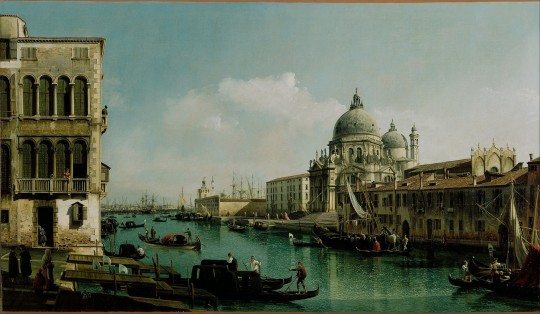
-Bernardo Bellotto,1743
6 notes
·
View notes
Photo

Blick auf Gazzada, in der Naehe von Varesevon Bernardo BellottoÖl auf LeinwandPinacoteca di Brera, Milan, Italy
#Bernardo Bellotto#landschaft#landschaftsmalerei#kunst#gemälde#meisterwerk#kunstdruck#museum#galerie#kunstwerk#alte meister
2 notes
·
View notes
Text
A 7-Part Worldbuilding Template
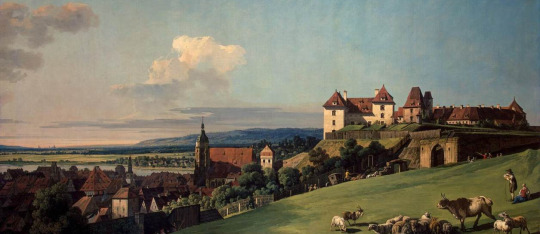
PART 1: The Basics
What is your world called?
Estimate its population:
In one sentence, describe your world:
Is it set on: Earth; Alternate Earth; Not Earth / Another planet
PART 2: Geography
THE NATURAL WORLD Flora & Fauna; Creatures; Landscape; Diseases
How was the world created? How long ago was it created?
How do the laws of physics work?
How does the solar system move? What celestial beings exist (suns, stars, moons, etc.) and how do they relate to the world?
Flora & Fauna
How does the flora differ from region to region?
Do any plants have special or magical properties? Are any dangerous?
Creatures
What kind of wildlife roams which parts of your world? Where are they most commonly found?
How did the wildlife evolve?
Do mythical creatures such as dragons exist? How do they fit into the ecosystem?
Landscape
Where are the mountain ranges? Rivers? Forests? Deserts? Seas?
How does the terrain interact with its inhabitants?
Are there any “natural wonders” in your world? How were they formed?
Diseases
What natural diseases have evolved over time?
How are they transmitted?
How has this affected population growth?
LOCATIONS OF SIGNIFICANCE Capital City; Flags & Symbols
What are the major cities in your world? Ports? Most populated metropolises?
Is your world split geographically? (e.g. rural and urban, north and south, etc.) If so, how?
Capital City
What is the capital city of the world?
Why is it the capital?
Flags & Symbols
How does each city choose to represent itself (crest, flags, signature colors)?
WEATHER
What are the processes of your world that drive weather and ocean patterns?
Are certain regions more vulnerable to certain weather conditions?
Climate
How does the climate differ in each region?
What are the seasons like in your world? How many seasons are there?
PART 3: People
RACES & SPECIES Physical Build; Mannerisms & Etiquette; Customs & Rituals; Festivals
What intelligent species or races populate your world? Dwarves? Elves? Xenomorphs? Other? How did they come to exist?
How does each race or species perceive each other? How do they co-exist?
Physical Build
What do the inhabitants of your world look like? Do they have any distinguishing features?
What is the societal standard for beauty? How might this differ in each region of the world?
Mannerisms & Etiquette
What is the code of conduct between people of different ranks or classes? People of different cities or regions? Elders?
How do people in your world convey non-verbal boredom? Disbelief? Happiness? Respect?
What would be a gesture that is universally insulting in your world?
What etiquette exists in different parts of your world?
Customs & Rituals
Are there any rites of passages in your world? “Coming of age” celebrations? If so, what age marks the transition from child to adult?
What traditions surround death and burial? What about engagements and proposals of marriage?
Festivals
What are the important festivals of your world?
Why are they celebrated?
LANGUAGES Sayings; Accents; Greetings
How many languages exist in your world? How did they originate?
Which language is spoken most? Is there a universal language?
How do naming conventions differ in each region?
Sayings
What are common sayings? Idioms? Insults? “Untranslatable” words that only a certain group of people would understand?
Accents
If different languages exist, how does this affect the accents in your world? What do the accents say about the person (place of origin, social class, level of education, etc.)?
Greetings
How do people of the same race greet each other? How do people of different races greet one another?
Is there an informal and formal way to greet others depending on the level of familiarity (i.e. friends, acquaintances, elders, superiors, etc.)? What are the proper forms of address?
SOCIAL FRAMEWORKS Class or Caste Systems; Family Structure; Marriage
What social frameworks underlie the communities in your world?
What are the social taboos? What would one need to do in order to be kicked out of society?
Class or Caste Systems
Is there a class system? If so, how much emphasis does society place on it?
What are the tell-tale signs that a person belongs to a certain class?
How does class affect professions and trades in your world? Can anyone become a priest or a wizard, for example — or is it a privilege restricted to certain members of the hierarchy?
Family Structure
What is the normal family unit?
What is the social system within a family unit in your world? Patriarchal? Matriarchal?
What constitutes a good father? A good mother? A good child?
Marriage
How is marriage defined in your world? Is marriage a civil or religious institution?
Do people marry for love? If not, why do they marry?
PART 4: Civilization
HISTORY
How did civilization begin?
When was the earliest known record of history?
What were the significant wars that have taken place on your world’s soil? How have they shaped the present?
Can your world’s history be divided into significant eras (e.g. Georgian, Victorian, Edwardian, etc.)?
Myths
What myths exist in your world to explain the cosmos? How might this have in turn shaped religion?
How were stories passed through generations?
CULTURE Literature, Art & Music; Clothing; Cuisine
Is national culture and history a source of pride or shame in your world? How is it preserved?
What are some things that define each culture? What would a person from a certain city, region, or country be proudest of?
Literature, Art & Music
What is the role of the arts in your world’s culture? How is it perceived by society and how has it evolved?
Who are some celebrated or noted artists in history? What they known for?
How might the arts have changed as a result of outside influences (from other regions, cities, races, etc.)?
Are any of the arts taboo? If so, why?
Clothing
What is the customary dress? Is it gendered? If so, how?
What is considered fashionable and how does this differ from region to region?
How does the clothing one wears reflect status?
What is the dress code for each profession? How strictly followed must it be?
Cuisine
What are the regional dishes? How might this differ depending on the climate and environment?
Is there a difference between what the poor and the rich eat? What is considered a luxurious food? What is considered a staple food?
How are mealtimes approached? Is there a set hour to be at the table? Are there traditions that precede or follow a meal?
RELIGION Gods & Deities; Holy Texts; Significant Prophets
How do people worship in your world?
When and where do people worship?
Gods & Deities
Who are the major and minor gods that people worship?
What function do the gods serve in society?
Holy Texts
What (if any) holy texts exist?
How well-known are the scriptures? Would people of all ages be able to recite them on the spot if asked ?
Significant Prophets
Who are the important religious figures in the world?
For what reason are they significant?
EDUCATION
Does formal education exist? If so, who can access it? The rich? The clergy? Everyone in the general population?
If magic exists in your world, how is it studied? Do schools exist to train it?
What are literacy rates among the general population? How does this affect communication and the distribution of information?
LEISURE
How do people spend their leisure time in your world? What forms of entertainment are most common?
Are there any organized sports in your world? How might its rules and regulations differ from the ordinary?
PART 5: Technology, Magic & Weapons
MAGIC SYSTEMS Rules of Magic; Practitioning Magicians
For what purpose is magic used in your world? Who can use it?
What limits are there to its power? What are the consequences of using it?
What is the history of magic and magicians in your world?
How does society view magic? Positively? Negatively? As the Other?
Rules of Magic
How does magic work in your world? Where does it come from?
Is there a language that’s needed in order to call forth magic? If so, what are its roots?
Is magic regulated in any way? What is the governing body?
Practitioning Magicians
What are magicians’ status in society? Are they trusted advisors of kings or charlatans on the road?
How many magicians exist in your world? How do they perceive one another?
TECHNOLOGY
How advanced is the technology in your world? How does it work?
How does technology impact the different parts of society? Transportation? Communication? Medicine?
How does magic and technology interact and co-exist? Is it a rivalry? A co-op? Are there rules and regulations?
WEAPONRY Signature Weapons; Common Weapons
What weapons are predominant in your world (ranged, combat, anti-gravity, etc.) and why?
Who makes the weapons? How do they work? Is it easy to obtain them?
Signature Weapons
Are there special weapons (e.g. Thor’s Hammer)?
How are they made? How many of them exist in the world?
Common Weapons
Are there professions that necessitate the bearing of weapons?
What about religions?
PART 6: Economy
ECONOMICS
On which economic system does your world operate? A market economy? Feudalism? Socialism?
Is there a central bank?
How does the government regulate businesses?
TRADE & COMMERCE Currency; Major Imports & Exports; Natural Resources
How is trade facilitated? Is it carried out by traveling merchants? By a guild? Are there auctions?
What cities, countries, or regions are allies? Trade partners? How has this changed throughout history?
How is the soft power of a region, city, or country determined?
Currency
Is there a universal currency? If not, what are the regional currencies? What is the valuation?
How is the currency circulated and what are the denominations?
Can the currency be broken down into units (dollars, cents, dimes, quarters)?
Major Imports & Exports
What are the major exports of the region or city? Imports? How might this have evolved throughout history?
Does a particular region specialize in particular trade (i.e. livestock, weaponry, etc.)? Why?
Natural Resources
What resources are natural in each part of your world?
How does this affect trade and trade relationships?
TRANSPORTATION
How easy it is to travel within a city and outside of a city? What modes of transportation exist (horse, anti-gravity car, etc.)?
How is information disseminated all over your world (ink and paper, owl, newspaper, messenger)?
BUSINESS
What crafts or trades are highly valued in your world?
Are some professions considered more elite or respectable than others? How so?
How do people advance in their fields? Are there apprenticeships? How easy is social mobility?
What is the normal work schedule for the average person? What is the average income?
PART 7: Politics
GOVERNMENT
What is the form of government? Is it a monarchy? Republic? Empire? Theocracy?
What are the responsibilities of the government? How far does the government’s sphere of influence spread (magic, religion, etc.)?
How is the government perceived? Is it trusted by the people or is there tension?
LAW Justice Systems; War Systems
What is the rule of law in your world? How is law enforced? What are the most important laws?
What are the punishments for breaking the law?
Justice Systems
What is the legal process in your world? How are people tried?
How does magic fit into the legal system? Is it above the law?
War Systems
How is war declared? Is there a formal process that a country must go through in order to engage in war?
What is the command structure of the army?
How big is the army? Is it composed of humans? Non-humans? Both?
Source ⚜ More: Writing Worksheets & Templates Writing References: Plot ⚜ Character ⚜ Worldbuilding
#worldbuilding#writing reference#dark academia#spilled ink#writeblr#literature#fiction#writers on tumblr#writing prompt#writing#on writing#writing tips#writing advice#writing inspiration#writing ideas#writing inspo#novel#story#booklr#bookblr#creative writing#bernardo bellotto#writing resources
131 notes
·
View notes
Text

The Neuer Marktplatz in Dresden painted by Bernardo Bellotto (1721 - 1780)
#art#art history#artwork#culture#history#museums#painting#vintage#cityscape#buildings#bernardo bellotto#urban#street#streets
130 notes
·
View notes
Text

Bernardo Bellotto, View of Warsaw from the Terrace of the Royal Castle
0 notes
Text

View of Verona and the River Adige from the Ponte Nuovo by Bernardo Bellotto (1721 - 1780)
72 notes
·
View notes
Text

Bernardo Bellotto - Capriccio with a River and Bridge
1 note
·
View note